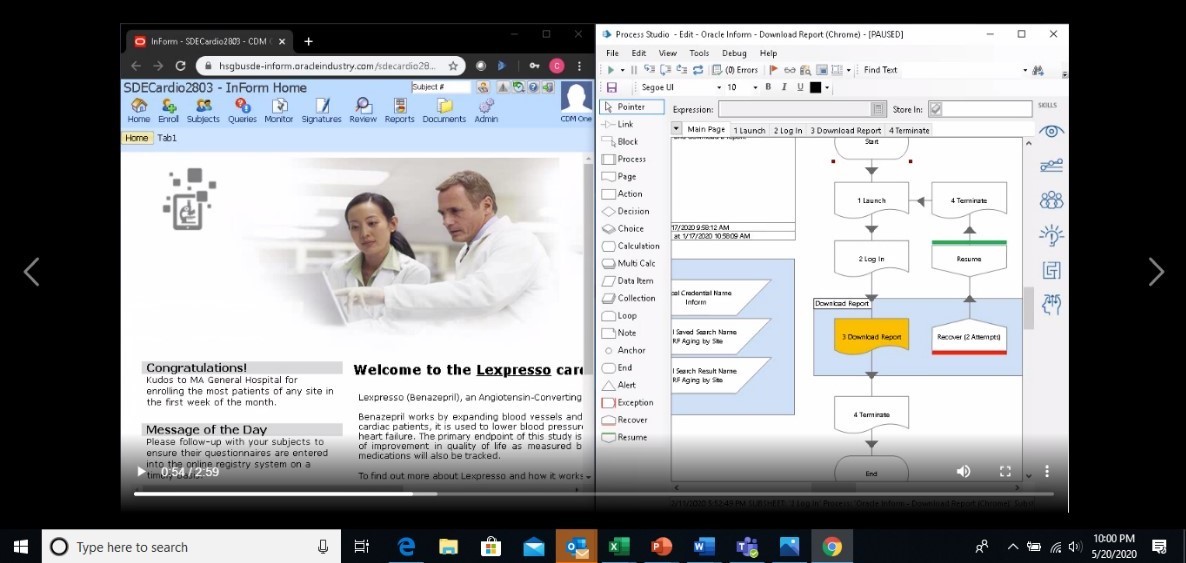Event
A global event series blazing a trail for those wanting to unlock the transformative power of intelligent automation.
Contact Us
In this era of Covid-19 the speed and efficiency of clinical trials is mission critical. Trials to find effective treatments and vaccines for this unprecedented disease are underway throughout the world and time is of the essence. There are many considerations and factors that lead to successful trials, from the site teams to procedures, compliance, and technology.
So, how can RPA and Intelligent Automation help in clinical trials?
In clinical trials, RPA stands for "Robotic Process Automation." RPA is a technology that uses software robots to automate repetitive and rule-based tasks in various industries, including healthcare and clinical research.
Robotic Process Automation (RPA) and eClinical platforms are the key to managing and unifying all elements of the Clinical Development Lifecycle in a safe, secure, and compliant manner, while also being open, collaborative, and adaptive to change.
Here's some examples of where RPA can be used in clinical trials:
RPA can lead to increased efficiency, reduced human error and cost savings, which result in faster and more successful clinical trial outcomes. However, it's important to remember that while RPA can automate many processes, human oversight and expertise remains essential to ensure ethical considerations and clinical trial quality.
Pfizer
Pfizer, a pharmaceutical company, has successfully used Blue Prism RPA and IA to achieve significant breakthroughs that positively impact patients' lives. One of the key areas where RPA has been implemented is in the management of clinical trials. Pfizer used an innovative approach to utilize solutions from SS&C Blue Prism for handling substantial amounts of clinical trial data. This RPA and IA solution has enabled their colleagues to process the data approximately 88% faster. This has resulted in improved patient outcomes and enhanced medical advancements in the field of healthcare.
Learn more about the Pfizer story here
Ideally you need an electronic data capture solution that integrates with your RPA platform to deliver an automated clinical trial technique in order to reduce clinical trial timelines, cost, and risk. Combining Blue Prism’s Digital Workforce with Oracle’s InForm solution helps pharmaceutical organizations improve clinical trial efficacy and ensure regulatory compliance. Automating what is currently a manual, labor intensive and time-consuming process allows study teams to ensure accurate data and SDV levels.
In the case of clinical trials, automations around the creation of report visualizations now reduce human error and save the team significant hours annually. It currently takes entire teams to pull the same reports on a daily basis over and over again to compare the data and look for changes in the variance level. Now, a Blue Prism Digital Worker can log into Oracle InForm and pull reports, read them and look for any variance level changes. The Digital Worker is spun up in its own virtual environment and can work on multiple tasks as needed and with 100% accuracy.

To further demonstrate how these two solutions work together to facilitate faster and easier critical decisions, check out the demo.
If your network blocks YouTube, you may not be able to view the video on this page. In this case, please use another device. Pressing play on the video will set third-party YouTube cookies. Please read our Cookies Policy for more information.